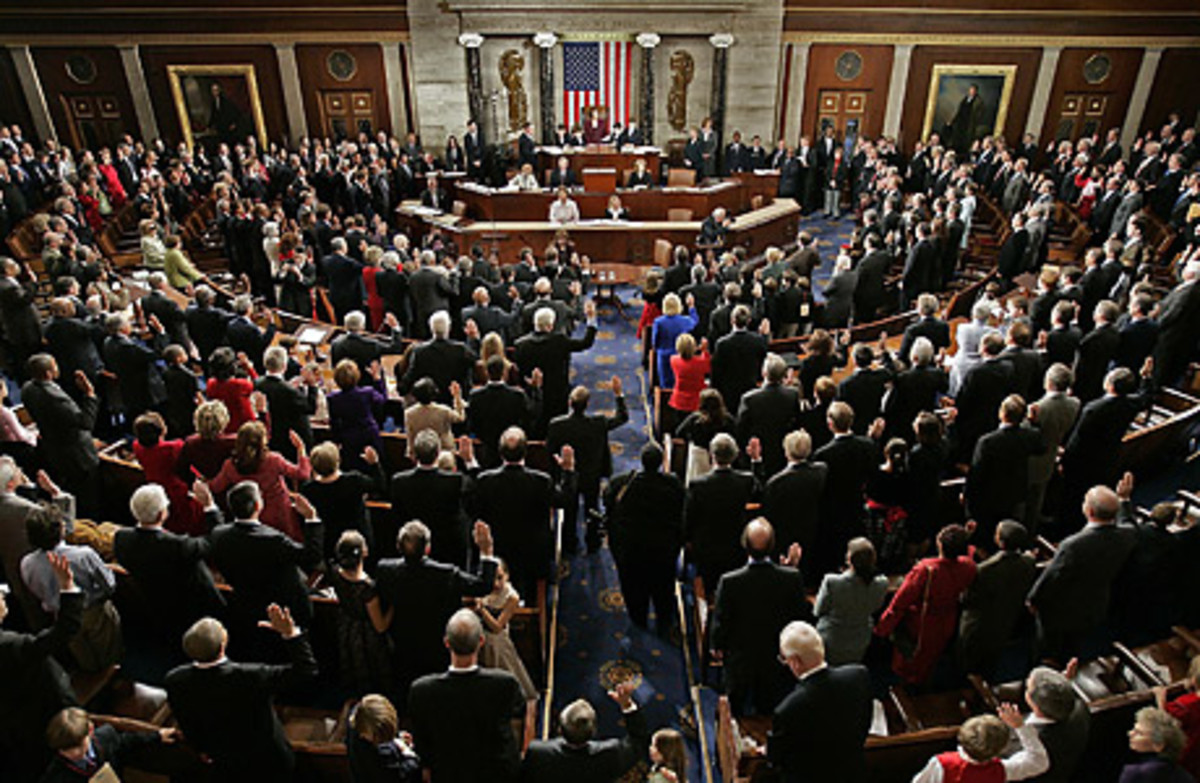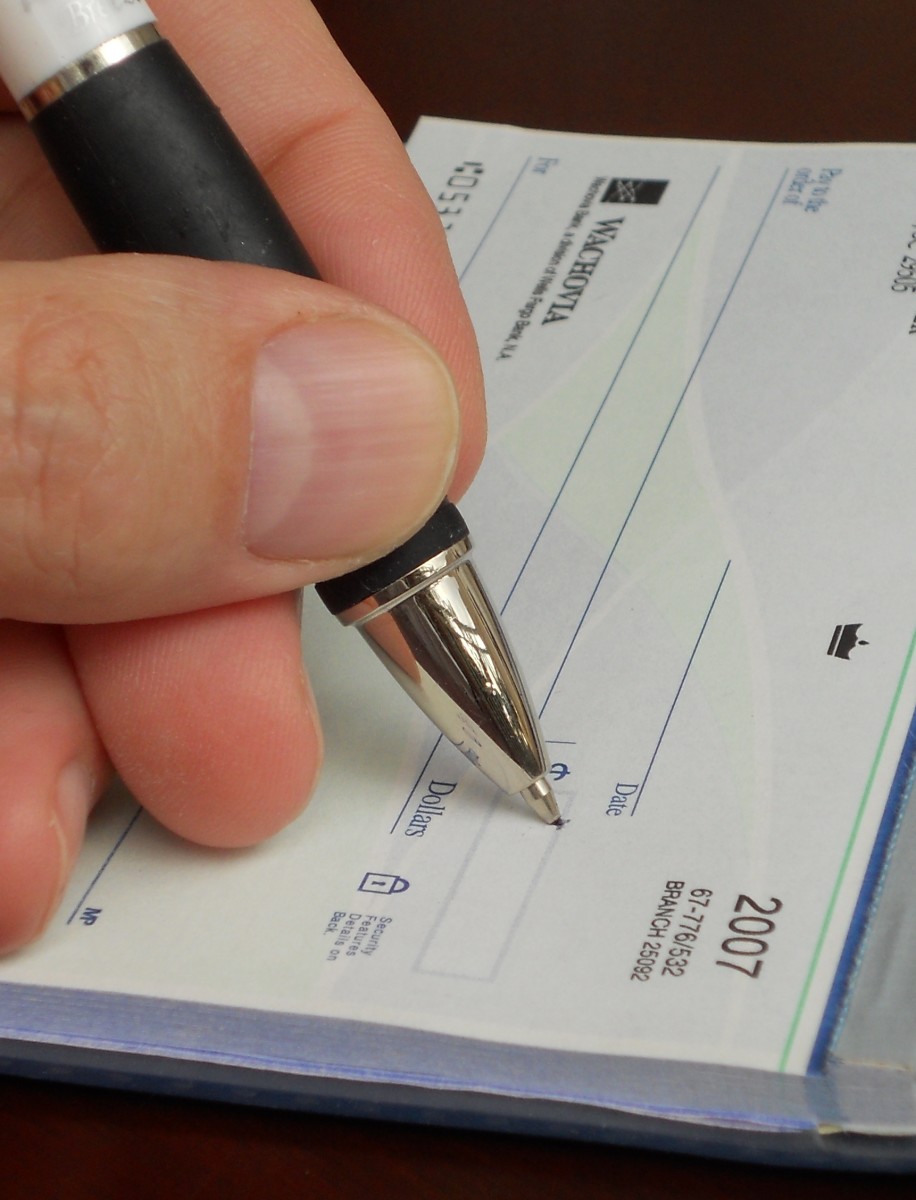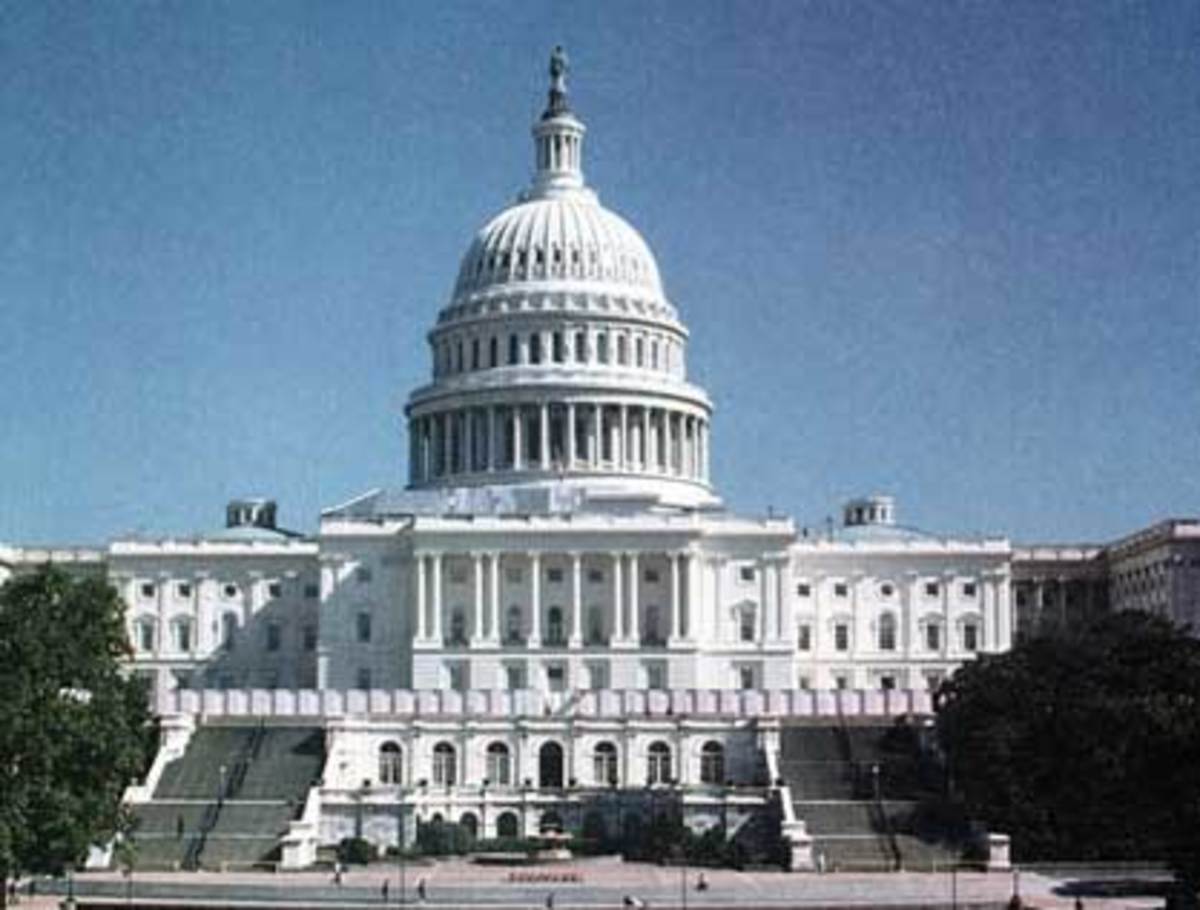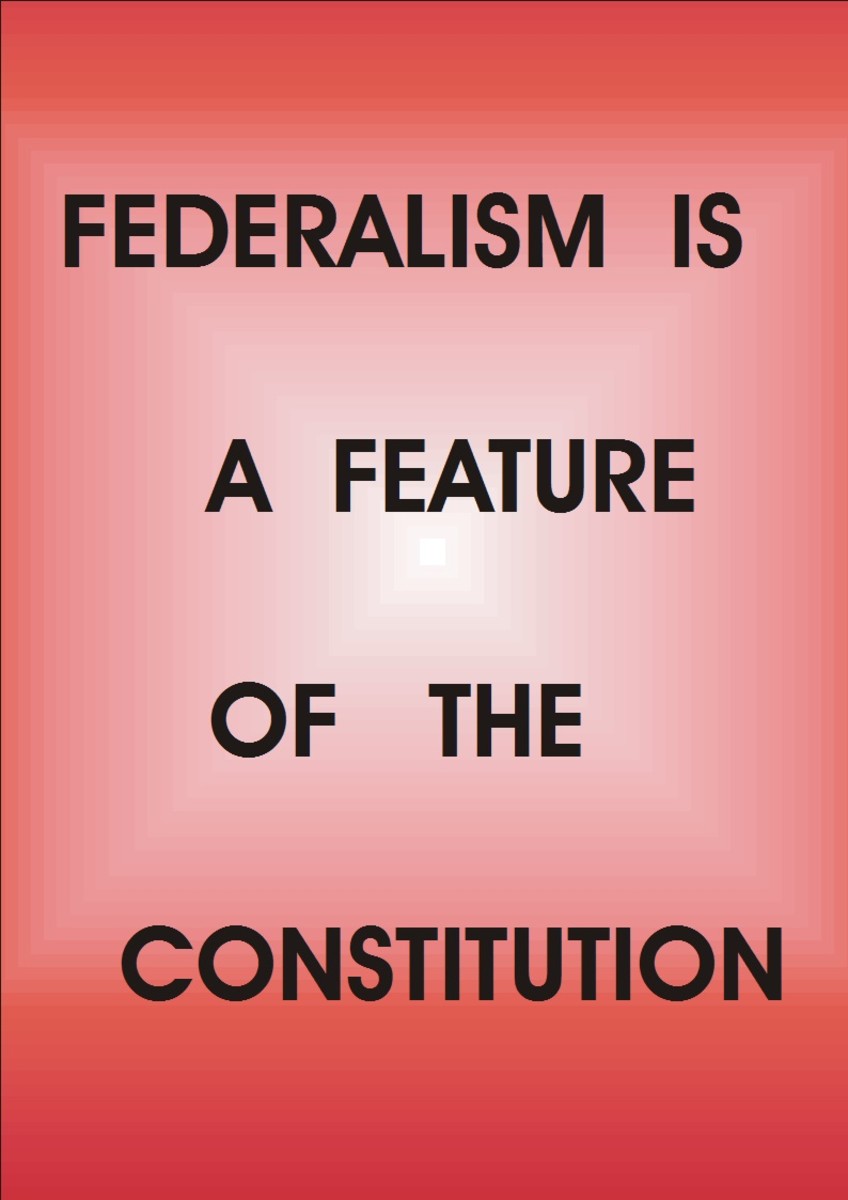Online Gambling - Are Our Rights Protected?
Gambling is an American tradition and pastime. Horse racing, casinos, lotteries, and sports wagering have all become more and more popular as America has grown. Attracting a diverse population, gambling generates hundreds of billions of dollars a year in revenue. In the state of Nevada, you can wager on just about anything your mind can imagine. Why is it that America does not take advantage of the online gambling industry, and continues to pass gaming legislation in an unproductive manner? Gambling for the most part is legislated state to state, with the exception of online gambling, which is at this time supposedly prohibited at the federal level, I say supposedly because the laws are so vague, that neither general public, nor congress can make sense of them. It is sort of like telling a child, you can’t play, and the child then looks at you and asks why? I don’t know; you just can’t! There is no rhyme, nor reason. The sole purpose of this writing is to analyze some key aspects of the current legislation, and decide for ourselves if there is any validity to it, and does the current legislation impede on our rights as Americans to choose for ourselves?
Gambling is legal under US federal law, and each state is free to regulate or prohibit it. If state-run lotteries are included, almost every state can be said to allow some form of gambling. However, casino-style gambling is much less widespread (Wikipedia), limited to less than half the states. Hawaii and Utah are the only two states that prohibit every type of gambling (Wikipedia). The federal government’s reasoning in the prohibition of online gambling is rather simple; keep U.S. dollars in the U.S. however, this is a weak ideal when the U.S. has lost out on nearly 60 billion dollars in tax revenues over the last couple years alone and nearly 32,000 new jobs (Burton, 2010). In the mean time European countries are regulating and taxing this multi-billion dollar a year industry. Online casinos are enjoying a sustained interest across Europe. Norway, Sweden, Denmark, Germany, Austria, France and Ireland are all examples of countries that have seen the highest growth in terms of online casino-club creation (Gambling Planet.org).
So what legislation is it that prevents U.S. citizens from partaking in online gambling?
“The Interstate Wire Act” of 1961, often called the “Federal Wire Act” as written reads “Whoever being engaged in the business of betting or wagering knowingly uses a wire communication facility for the transmission in interstate or foreign commerce of bets or wagers or information assisting in the placing of bets or wagers on any sporting event or contest, or for the transmission of a wire communication which entitles the recipient to receive money or credit as a result of bets or wagers, or for information assisting in the placing of bets or wagers, shall be fined under this title or imprisoned not more than two years, or both” (Wikipedia). This law though it does not state gambling to be illegal in the U.S. was used against online casino’s and money transfer companies to seize over 40 million dollars last year alone (Costigan). These seizures have forced companies like PayPal and Neteller to close their doors altogether to the online casino’s making it even more difficult for gamblers in the U.S. or foreign countries to participate in online gambling. In 1961 when this act was introduced, the intention was to gain control of the gambling industry, as the mob seemed to be in control. During the House of Representatives debate on the bill, Congressman Emanuel Celler, Chairman of the House Judiciary Committee stated “this bill only gets after the bookmaker, the gambler who makes it his business to take bets or to lay off bets, it does not go after the causal gambler who bets $2 on a race. That type of transaction is not within the purvue (purview or reach) of the statute” (Rodefer). Furthermore this law does not address even the most sophisticated betters, no matter how big the wager is.
Although the “Wire Act” was used in seizing millions of dollars last year, congress has been working even less hard at law provisions in regards to online gambling. In 2006, in a last minute, last ditch effort in controlling online gambling in the U.S. passing the “Safe Port Act” (Security and Accountability For Every Port Act), which is intended to provide port and maritime security, congress attached “Title VIII” known as the “Unlawful Internet Gambling Enforcement Act of 2006” (or UIGEA) (Wikipedia). The UIGEA written consisted of two new bills that were intended to reach congress separately. One was “The Leach Bill” which addressed that electronic funds transfers that were not initially or directly addressed by the Wire Act be introduced. The second was “The Goodlatte Bill”, similar to the Wire Act, but to include online casinos and poker rooms to be included in the scope of being in the business of betting and wagering (CasinoAdvisor.com, 2008). According to Wikipedia “The SAFE Port Act” as passed by the House on May 4th (by a vote of 421-2) and the United States Senate on September 14th (98-0), bore no traces of the UIGEA that was included in the SAFE Port Act signed into law by George W. Bush on October 13th, 2006. The UIGEA was added in Conference Report 109-711 (submitted at 9:29pm on September 29, 2006), which was passed by the House of Representatives by a vote of 409-2 and by the Senate by unanimous consent on September 30, 2006. Due to H.RES.1064, the reading of this conference report was waived (Wikipedia). The UIGEA however, excluded online horse race betting, online lotteries, and online fantasy sports betting, two of which are directly contradicting other prohibiting legislature such as “The Professional and Amateur Sports Protection Act” of 1992 as written, “(1) a government entity to sponsor, operate, advertise, promote, license, or authorize by law or compact, (2) or a person to sponsor, operate, advertise, promote, pursuant to the law or compact of a government entity, a lottery, sweepstakes, or other betting, gambling, or wagering scheme based, directly or indirectly (through the use of geographical references or otherwise), on one or more competitive games in which amateur or professional athletes participate, or are intended to participate, or on one or more performances of such athletes in such games” (Rodefer J. ).
Laws like the Wire Act which was put in to place to take control of gambling, and the UIGEA attached to a bill that had no significant relevance to gambling whatsoever, are not only vague in showing the legalities of gambling online in the U.S. but they are far from even making gambling illegal. Congress has given the powers to each state to decide for themselves whether to prohibit gambling or not, but have kept the internet aspect of gambling tied up for years. In the passing of the Safe Port Act and the attached Title VIII, the total bill cost each and every American taxpayer $26 each over a period from 2006 to 2011 (Govtracks.us), totaling 8.9 billion dollars (Govtraks.us). This Act was passed with little to no knowledge of the American public and forced gamblers across America to pay the bill for an Act that “prohibits” or “deters” them from both the enjoyment of online gambling, or even the ability of income, for the professional gambler, such as a professional poker player.
The ideal of keeping U.S. dollars in the U.S. is one I feel all Americans can agree on; however in this time and economy, there’s a need for more employment opportunities and a better economy. By regulating online gambling in a safe productive manner, it seems to me that gambling would provide more benefit to the U.S. than hindrance. If congress legislates the legality of online gambling in the U.S. then the states that have land based casinos would have the opportunity to jump on board, giving America an opportunity to keep the U.S. dollar in the U.S. Seizing 40 million dollars a year, and not creating any opportunity for employment, just seem unthinkable, compared to the thousands of jobs that the government would create and the billions in tax revenue it would generate by putting a stop to this unproductive legislation. And once again Americans could feel American, knowing their rights are being protected.
Works Cited:
Burton, E. (2010, 4 20). New Study Indicates U.S. Internet Gaming Regulation Would Add Jobs, Tax Revenue. Retrieved 6 12, 2010, from Poker News Daily.com: http://www.pokernewsdaily.com/new-study-indicates-us-internet-gaming-regulation-would-add-jobs-tax-revenue-9972/
CasinoAdvisor.com. (2008, 1 5). An Analysis of the UIGEA: Legal and Practical Repercussions. Retrieved 6 12, 2010, from Casino Advisor: http://www.casinoadvisor.com/uigea-article.html
Costigan, C. (n.d.). Seized Online Poker Funds Now Up To $40 Million. Retrieved 6 12, 2010, from Gambling911.com: http://www.gambling911.com/gambling-news/seized-online-poker-funds-now-40-million-061709.html
Gambling Planet.org. (n.d.). Online Casinos & EU Legislation. Retrieved 6 12, 2010, from Gambling Planet.org: http://www.gamblingplanet.org/legality_main.php
Govtracks.us. (n.d.). H.R. 4954: Safe Port Act. Retrieved 6 12, 2010, from Govtracks.us: http://www.govtrack.us/congress/bill.xpd?bill=h109-4954
Govtraks.us. (n.d.). H.R. 4954: Safe Port Act (total bil). Retrieved 6 12, 2010, from Govtraks.us: http://www.govtrack.us/congress/bill.xpd?bill=h109-4954&tab=reports
Rodefer, J. (n.d.). Professional and Amateur Sports Protection Act of 1992. Retrieved 6 12, 2010, from Gambling-Law-US.com: http://www.gambling-law-us.com/Federal-Laws/sports-protection.htm
Rodefer, J. (n.d.). The Wire Act. Retrieved 6 12, 2010, from Gambling-Law-US.com: http://www.gambling-law-us.com/Federal-Laws/wire-act.htm
Wikipedia. (n.d.). Federal Wire Act. Retrieved 6 12, 2010, from Wikipedia: http://en.wikipedia.org/wiki/Federal_Wire_Act
Wikipedia. (n.d.). Gambling in the United States. Retrieved 06 12, 2010, from Wikipedia: http://en.wikipedia.org/wiki/Gambling_in_the_United_States
Wikipedia. (n.d.). Safe Port Act. Retrieved 6 12, 2010, from Wikipedia: http://en.wikipedia.org/wiki/SAFE_Port_Act









